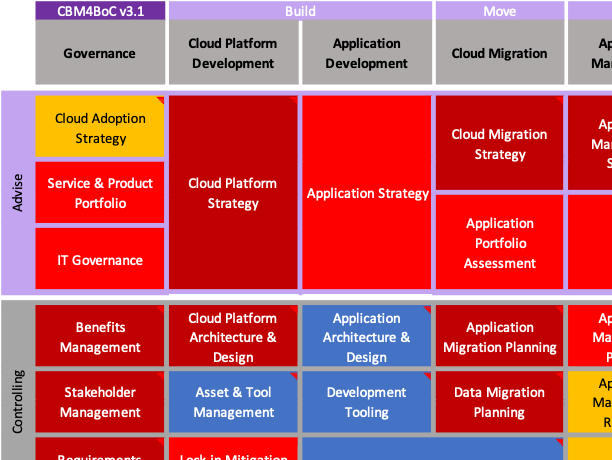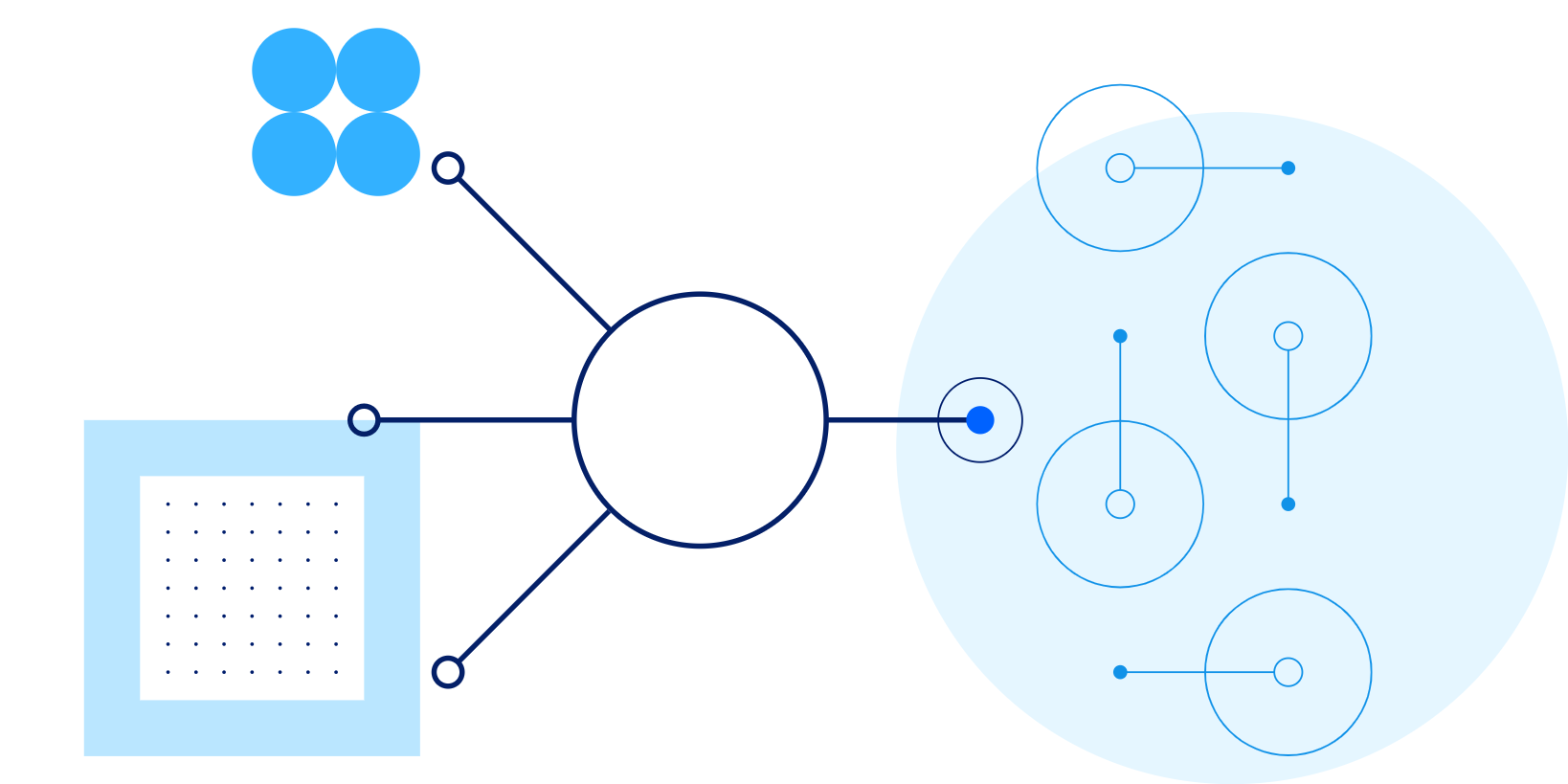Cloud
CBM4Cloud Workshops
9 October, 2020 | Written by: Zeeshan Ahmed
Categorized: Cloud | Government | Perspectives
Share this post:
CBM4Cloud Workshops
Since the turn of the year, alongside my usual job responsibilities, I have found myself running Component Business Model for Cloud (CBM4Cloud) workshops with our Public Sector clients. For those who are not aware, a CBM4Cloud workshop is a method that IBM uses (with or without a client) to understand the client landscape in their journey to cloud. The workshop typically lasts an afternoon when doing it in person or even just a few hours when doing it remotely, as has been the case during this lockdown period.
So what actually goes on in this workshop? I hear you ask. Well, during this workshop, we work through a template and answer a series of questions to help identify any gaps and pain points that the client may have in their plans to move to the cloud. We address questions such as:
- What are the key capabilities that will secure future success?
- How can we build more synergy across the client’s organisation?
- How does the client become a truly globally integrated enterprise?
During this workshop, we also look to assess the client’s strategy, implementation and management across the following key pillars of cloud:
- Governance
- Cloud platform and application development
- Cloud migration
- Platform maintenance
- Management (application, financial and services)- Security
The output from this workshop is a series of heatmaps (pictured below) documenting the client readiness and landscape. From this we can then come up with a masterplan consisting of potential projects and activities that will help the client to deal with their pain points and accelerate their journey to the cloud.

Figure 1: Sample heatmap
Running these workshops has been really useful, not just for myself or the rest of the IBM team, but also for the client as it gives them a view that they never had before. As the workshop brings together people from different roles, it gives all participants an opportunity to develop a shared understanding of the different capabilities that are assessed as part of the workshop. Sometimes however, the information shared may not necessarily be new for everyone. This is still absolutely fine as the real value here is to have a single place (the template in this case) where all this knowledge is collated. This makes it extremely useful when coming up with projects and activities.
Whilst these workshops are relevant to all industries, it is with Public Sector where sometimes the greatest value is seen. Public Sector clients do not typically have a smooth journey to the cloud as clients from other industries. Due to the various different regulatory and governing processes, not to mention political and societal influences, adopting new technologies in a timely manner can prove to be difficult and overwhelming. Then there is the crucial matter of technical debt, which is so hard to get away from due to nature of spending reviews and subsequent diversion of public funds to deal with situations such as Brexit and the COVID-19 pandemic. This was evident with one of our Public Sector clients for whom we ran a workshop for recently. As this client has not really started on their journey to cloud, there were a large number of gaps and pain points for the client to address. What this CBM4Cloud process allowed us to do was identify these gaps and pain points and prioritise them before coming up with relevant projects and activities.
If after reading this, you’re wondering if this workshop costs an arm and a leg, then wonder no more. You’ll be pleased not know that this workshop is actually completely free. If you want to know more information about the workshop or even want us to run one with you then reach out to your IBM client team or alternatively get in touch with gkavanag@ie.ibm.com.

Client Technical Leader, IBM
Generative AI: driving a new era of HR transformation
Helen Gowler, Partner, EMEA Talent & Transformation Lead Today, I’m proud to be part of a company that’s committed to addressing gender bias in the tech industry. IBM is pioneering the use of AI to tackle this issue, and I’m excited to contribute to this effort. Our team is developing AI models that can detect […]
Multi-Modal Intelligence Platform
Traditionally, data management systems provided only numerical or textual based business intelligence primarily for back-office users across finance, sales, customer management and supply chain. Today, we are increasingly seeing data management systems which drive key business functions requiring interrogation of multi-modal data sets from documents, presentations, images, videos to audio. This demands a more sophisticated […]
The use of GenAI to Migrate and Modernise Organisational Core Programming Languages
GenAI is hugely powerful and supports a diversity of use cases by focusing on routine work – allowing people to focus time on value-add tasks, thus enhancing productivity. The focus of this use case is for an organisation which had previously focussed on a legacy set of tooling and programming languages and needed a way […]


